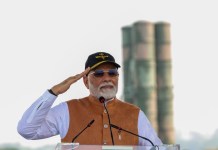Serbia, a non-EU member is China’s ‘best friend’ in Europe, with Beijing engaging in a number of massive projects in the Balkans. Though Serbia may seem like an unlikely partner, it has nonetheless helped China’s European push. Beijing is establishing a significant foothold on Europe’s southeastern doorstep, increasing its influence in countries that will likely one day be members of the European Union.
- Is Turkish President Erdogan Looking to Revive the Ottoman Empire?
- Not Israel, Not Kashmir; Iran A Major Cause Of Concern for The Arab League
In 2018, China experienced a number of setbacks, with the latest being the tightening of foreign direct investments by the European Commission. And on top of that, Germany established new rules against foreign acquisitions of German companies in technology.
According to Carnegie Endowment for International Peace, Serbia’s drive to strengthen the political and diplomatic relationship with China has been greatly driven by the Kosovo issue.
The Serbian leadership itself saw China’s rise and West’s vulnerability during the 2008 financial crisis. And this has been acknowledged by the Serbian President Aleksandar Vucic. “Thirty years ago you had one, absolutely dominant military, political, and economic power – the US. With its economic, but also with its military and political power, the People’s Republic of China dramatically catches up.”
In November 2018, the Serbian leadership consulted the Chinese ambassador on the issue of Kosovo, which is another role that the incumbent Serbian government traditionally reserved for the Russian Embassy. This highlights ‘a lot’ about the Sino-Serbian relationship. Moreover, Serbia is in the process of acquiring Chinese drones for its armed forces and technology that will allow the country’s defence industry to produce UAVs in the long term.
But there’s more than an arms deal. As per reports by Politico, “China has loaned Serbia money for everything from a €170 million bridge over the Danube in Belgrade to a €700 million thermal power plant.” Experts say the nucleus of Beijing’s engagement in Serbia is the €3 billion high-speed rail link between Belgrade and Budapest.
The 350-kilometre project includes a separate track for freight. This is the key piece of Beijing’s strategy to connect the Greek port of Piraeus with Central Europe. China became a big player in European port business in 2008 when the Greek Government nearly went bankrupt.
Since then the Asian giant established a foothold in Europe’s three major ports – Euromax in Rotterdam, the Netherlands; Antwerp in Belgium; and Hamburg in Germany. Furthermore, Serbia has appreciated that Chinese investment has resulted in increased trade
However, member states of the European Union are wary of China. The EU sees China’s involvement in Europe, most of all in its ports, as a well-planned strategy to exert political influence in individual member states.
More News at EurAsian Times
- Indian Military Base in Vietnam To Protect Hanoi’s Territorial Interest
- Indian Military Base in Sabang can Strangle China at the Strait of Malacca
- Saudi Money, US Weapons, Israeli Intelligence Fuelling Arab NATO – Iran
- Will Ayni Airbase in Tajikistan Become India’s 1st Overseas Military Base?
- Indonesia Opens Another Military Base at Natuna Islands To Counter Aggressive China




